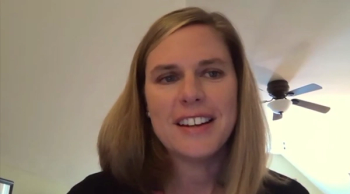
An expert discusses recent advancements in breast cancer treatment, focusing on the addition of CDK4/6 inhibitors for high-risk ER-positive, HER2-negative breast cancer.

An expert discusses recent advancements in breast cancer treatment, focusing on the addition of CDK4/6 inhibitors for high-risk ER-positive, HER2-negative breast cancer.

Bispecific antibodies like teclistamab offer “more potent” treatment than monoclonal antibodies for patients with relapsed or refractory multiple myeloma.
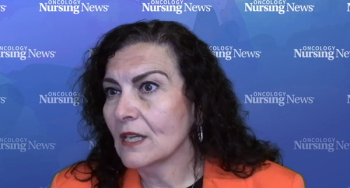
An oncology nurse practitioner highlights the benefits of attending conferences like the ASCO Annual Meeting.
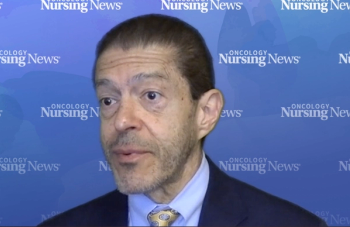
Care teams should maintain frequent communication with patients with chronic myeloid leukemia to ensure best outcomes, even between appointments.
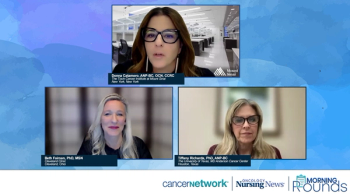
The panel provides clinical advice on caring for patients with multiple myeloma who are treated with talquetamab.

Beth Faiman, PhD, MSN, explores how a GPRC5D-targeting bispecific antibody can benefit patients with relapsed/refractory multiple myeloma.

Experts explore strategies to effectively manage toxicities associated with talquetamab in the treatment of multiple myeloma.

This session explores clinical evidence for sequencing treatments in MM, highlighting the safety profile of talquetamab as a potential tool in your MM patient management.

Following the repeat diagnostic workup presentation, an expert will lead the discussion, inviting the panel's input on the most appropriate treatment course for this patient.

The panel discussed resources to equip nurses in educating patients with multiple myeloma about their treatment options.

A team of multiple myeloma experts review a patient profile, offering preliminary insights and underscoring the importance of advanced practice providers in optimizing patient care.
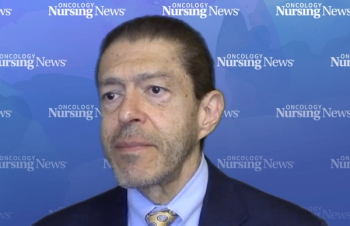
Patients who recently received a chronic myeloid leukemia diagnosis can benefit from initial discussions about treatment, side effects, and study results.
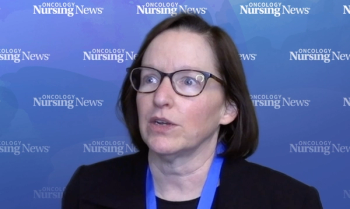
Resources are available to help patients through a chronic myeloid leukemia diagnosis and treatment.
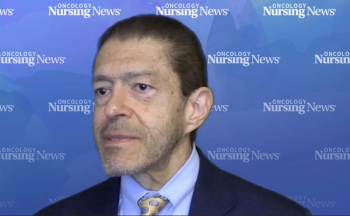
As most adverse effects of chronic myeloid leukemia treatment are manageable, patients with the disease may be able to continue their normal lifestyle while receiving therapy.
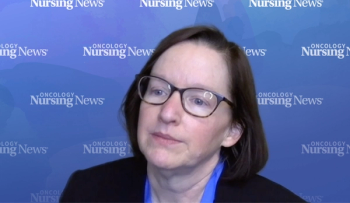
Patient-provider conversations are vital to promote the best care for chronic myeloid leukemia, a patient advocate said.
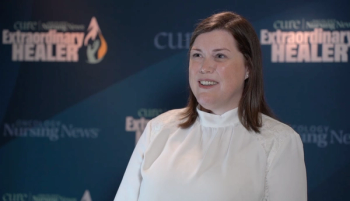
Meaghan Mooney, B.S.N., RN, OCN, discusses the steps she takes to be an extraordinary healer every day and offers advice for newer oncology nurses.
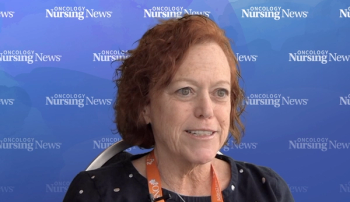
After reviewing the evidence, nurses switched from heparin-based flushes to all saline flushes for patients disconnecting chemotherapy at home.
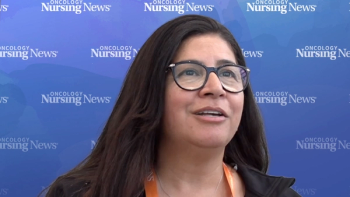
An oncology nurse explains how her institution created a surgical path card that improved wait times and patient satisfaction in adults undergoing cancer surgery.

In this episode of The Vitals, we speak with an expert who discussed the importance of supportive care and education for patients with lung cancer who are treated with immunotherapy.

The newly appointed president of the Oncology Nursing Society (ONS) discussed healthcare policies that she and ONS will continue to advocate for in the cancer space.
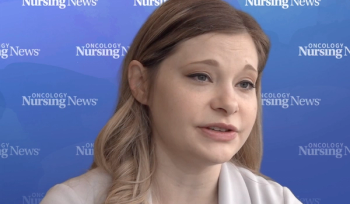
Advanced practice providers can lead clinical teams and patients to boost oncology clinical trial enrollment, a nurse practitioner explained.
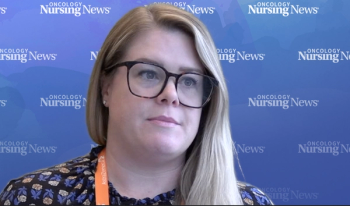
Establishing a nurse-led system to administer tocilizumab in patients receiving bispecific antibodies tended to get the immunosuppressive drug to patients faster.
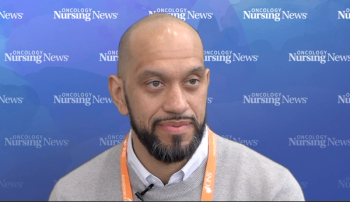
An oncology nurse details strategies used at his institution to reduce burnout — which can ultimately decrease the rate of “silent quitting.”
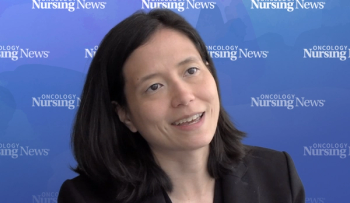
The establishment of a multidisciplinary committee can help identify opportunities to best face the ongoing cancer drug shortage.

Patients insured by Medicare can now receive coverage for lymphedema compression garments as a result of the Lymphedema Treatment Act, but it is essential that oncology nurses communicate this with their patients.

Next-generation sequencing may better predict dMMR in patients with colorectal or endometrial cancer, highlighting the importance of the testing.

Kim Noonan, DNP, ANP-BC, AOCN, FAAN, said there are things nurses can do to help manage the risk of thrombotic or cardiovascular events.

An oncology nurse said he wants patients to tell them about all their symptoms, so that they can get to the root of what is important and plan treatment accordingly.

Elizabeth Aronson, MSN, FNP-BCN, OCN, shares what stood out to her about the phase 2 MagnetisMM-3 trial assessing elranatamab in multiple myeloma.

Jennifer Cargile, MEd, CCC-SLP, shares some examples of how she helped patients continue their daily activities while they experienced symptoms of cancer-related cognitive impairment.